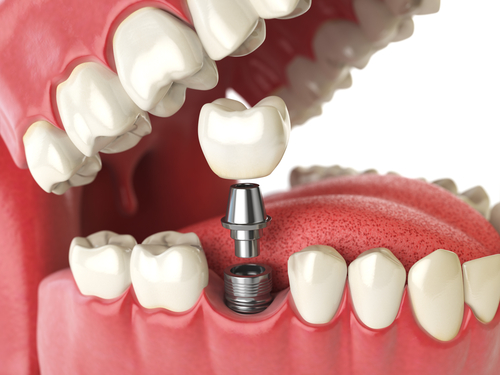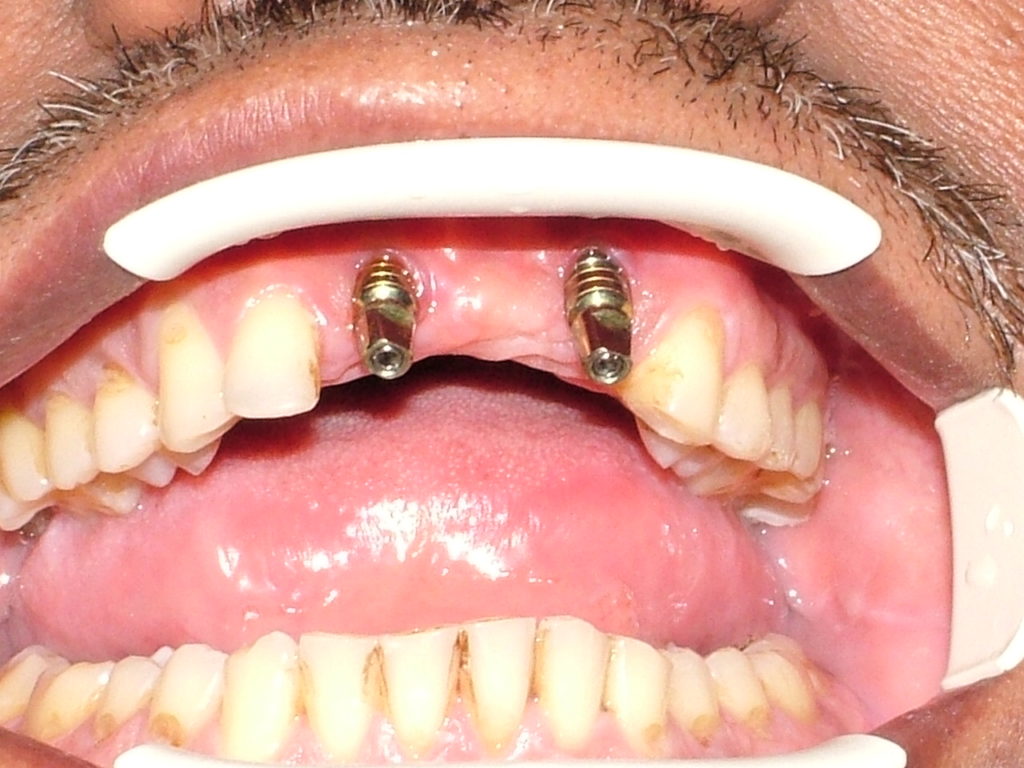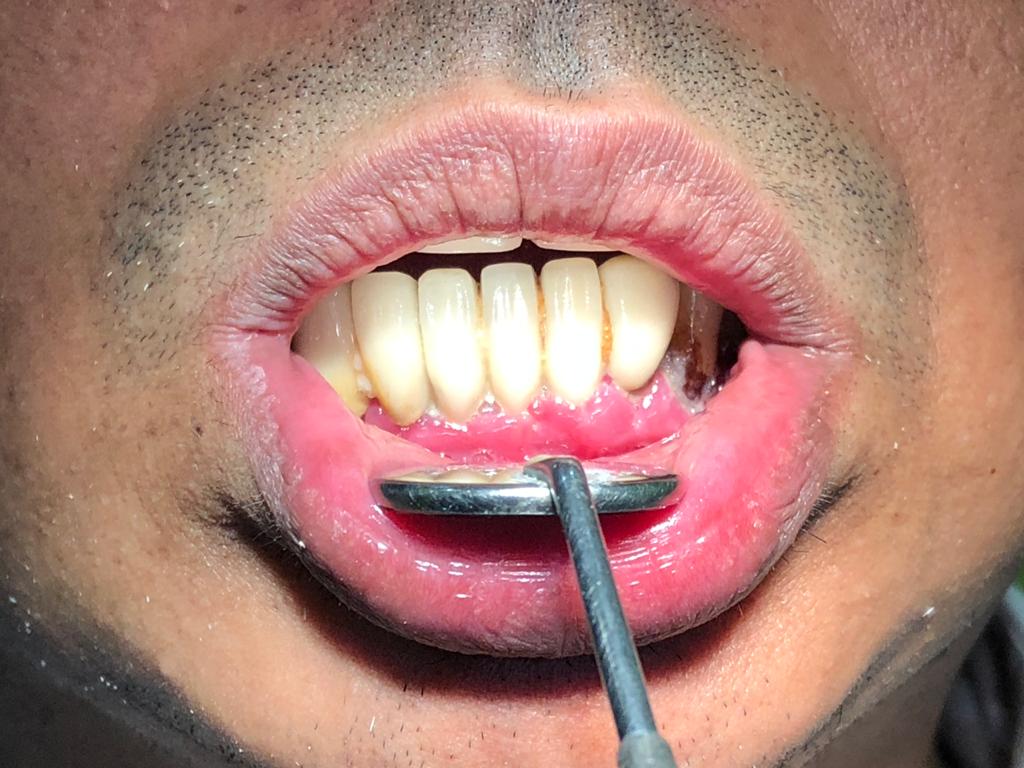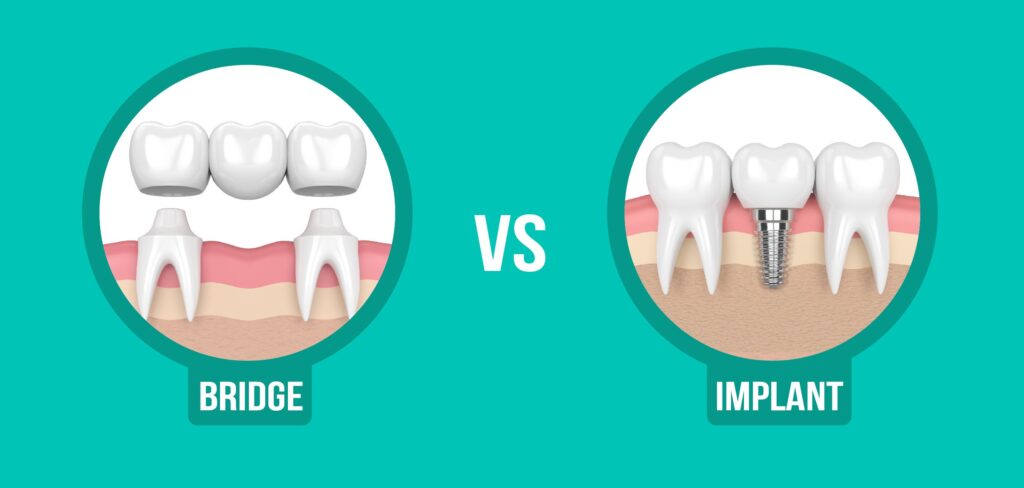Two popular restorations used to replace missing teeth are dental implants and dental bridges. The question is which option is right for you?
In the event of tooth loss or tooth extraction, the main priority is to restore functionality. Having missing teeth can also affect your self-esteem and confidence as it affects your appearance and speech. Two of the most common solutions used to address these problems are dental implants and dental bridges.
Although both dental implants and bridges might appear to give similar results, both options are vastly different technically. Its important to know in further depth about these options available to you if you are looking for the right solution to replace your missing teeth.
What is a Dental Implant?
This is a good option if you have lost a tooth due to decay or an injury, periodontal disease, or other reasons. A dental implant is a titanium post (acting as a tooth root) that supports a crown. It is surgically inserted into the jawbone where it will then fuse (or osseointegrate) into the jawbone to ensure that it is anchored in position. After the osseointegration process is finished (usually 3-6 months), an abutment is attached to the post frame. It protrudes above the gum line to provide the area where the dental crown is cemented or screwed into.

Pros and Cons of Dental Implants
Pros
Natural appearance of teeth
Dental implants look, feel, and function like a natural tooth. They are strong and stable, and they keep your smile confident. E Max Zirconia crowns give the most natural appearance.


Protects Your Jawbone
Having an open space in your mouth where a missing tooth once was leads to loss of bone in that area both in height and width. Dental implants stimulate and preserve natural bone growth, which helps prevent bone loss. Generally, high quality dental implants are expected to last a lifetime. Implants also help prevent the jaw bone from deteriorating, according to the American Academy of Implant Dentistry.
Prevents damage to adjacent teeth
A dental bridge takes support of adjacent teeth to replace the missing tooth. However, since it’s not anchored in bone, there is loss of bone in the area below the bridge. An implant is embedded in the jaw bone, and using the new tooth to bite and chew stimulates the bone, helping to prevent it from shrinking. However, the false tooth in a dental bridge doesn’t contact the jaw bone, so there may be bone loss.


Unlike a bridge, an implant stands on its own support while the biting and chewing forces on the implant stimulate the surrounding bone and avoid bone shrinkage. Dental implants also don’t use other teeth for support unlike dental bridges. This helps to protect surrounding teeth.
Long lasting with little maintenance
One big perk about dental implants is that they can last a lifetime when they are high quality. They require little maintenance such as flossing and using waterpik. Although the cost of treatment is higher compared to dental bridges, it is cheaper when compared to the cost the you might incur in the long run and will also prevent the pain, discomfort and repeated visits to the dentist.
Cons
- Dental implants do require surgery since the implant must be placed into your bone, while the procedure is straightforward, as with any surgery there are always risks. Fortunately, advancements in implant technology such as 3D CBCT Scans and advanced training have reduced the risk of implant complications to less than 1.8% on average.
Time
Implants take more time. Like all good things a dental implant takes more time to complete from start to finish because it takes a few months for your implant to fully and completely integrate into your jaw bone, a process known as osseointegration. Bone heals slowly so it might take 3 months at least before a dental crown can be placed on the implant. However, in many cases we can create a temporary crown until osseointegration has completed and you are ready for your permanent restoration.
What are Dental Bridges?
Dental bridges are used to bridge the gap between one or more missing teeth. The bridge is supported by the natural teeth or implants on either side. It is made up of two or more crowns for the teeth on each part of the gap. The anchoring teeth are called abutment teeth, and the false teeth that lie in between are called pontics.

Pros and Cons of Dental Bridges
Pros
Faster
It is a relatively faster process to get dental implants since it isn’t anchored in bone. It takes lesser time from start to finish and can be completed within a week or two.
Simple procedure
Since it doesn’t require surgical intervention it is a simpler process compared to dental implants. If you have habits such as smoking and tobacco chewing, dental bridges would be the recommended option.
Underlying health condition
If you have any of the following health concerns and depending on their severity a bridge may be the optimal solution for you.
- Recent myocardial infarction (heart attack)
- Heart valve surgery
- Bleeding issues due to factor 8 or factor 9 deficiency in blood
- Active treatment of cancer
- Drug abuse
- Osteoporosis
- Arthritis
- If you are on corticosteroid therapy
As always be sure to fully review your health history with your dentist so you can make the best decision for yourself.
- If there has been significant bone loss in the area of the missing tooth, there might not be sufficient space for a dental implant to get anchored in bone. Dental bridges would be be an apt option in such a case.
Cons
-
Less Aesthetically Pleasing
Bridges are not as natural looking as implants, and therefore are not as aesthetically pleasing. Bone loss occurs in the area of the missing tooth which can appear unaesthetic and cause food lodgment. This can make it hard to clean leading to calculus formation, reduction in level of gums and also cause bad breath.


Periodic Replacement
In case the adjacent supporting teeth get decayed, the affected tooth might fracture or require a root canal treatment. In that case the bridge will have to be replaced. The new bridge might be even more unaesthetic in appearance as the crown will be longer to cover the space created due to loss of bone. Although dental bridges can last many years, they may need to be replaced on average between 4-7 years.
Damage Natural Teeth
Preparing teeth for a bridge may damage perfectly healthy teeth adjacent to the missing tooth. Considerable amount of tooth structure is lost in reducing the adjacent abutment teeth to provide support to the bridge.
Bridges require more maintenance
They need more maintenance compared to dental implants to keep them clean and healthy. Specialized threaded floss is needed to protect against bacteria buildup that can result in irritation and gum loss.
The Cost of Implants vs Bridges
Oftentimes cost is ultimately the deciding factor when it comes to selecting a treatment option. And in the case of dental implants vs dental bridges, cost can be deceiving.
Dental implants usually start from Rs. 30,000 per implant. Alternatively, a dental bridge may cost significantly less, starting from Rs.15,000
(Keep in mind that the cost of both does not include any additional treatments or therapies that may be required beforehand. It should also be noted that neither dental implants nor dental bridges are covered by majority of health insurance policies in India. However, please check with your insurance regarding the same)
Since dental implants take longer to complete, have more considerations based on your health reports and cost significantly more, you might wonder why would anyone choose to undergo dental implant surgeries. In simple terms the answer is that dental implants are more long lasting compared to bridges.
A dental bridge will almost certainly have to be replaced whereas accurately placed implants can last 40 years or more. Implants have a significantly higher success rate compared to bridges.
The cost of the dental bridge is initially less, but it may need to be replaced at some point in the future. Implants – from preparation to final placement – may seem more expensive, but over time can be more cost-effective.
Which should I pick?
Hopefully this blog has given you an idea of which treatment option you would like to pursue. If you are still not sure which solution is right for you or you have questions please call us or set up a time to come in for a consultation to better determine which treatment is right for you


